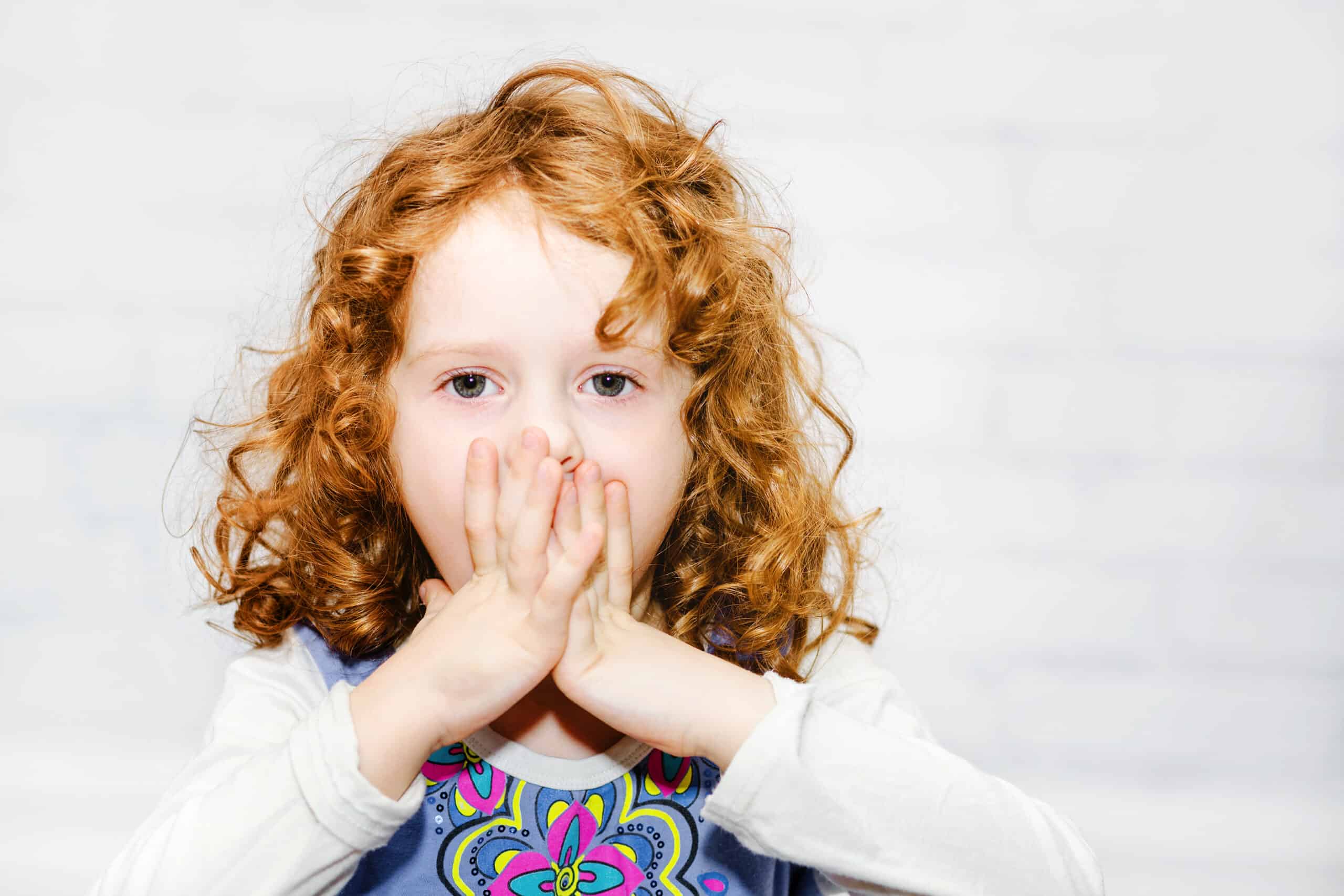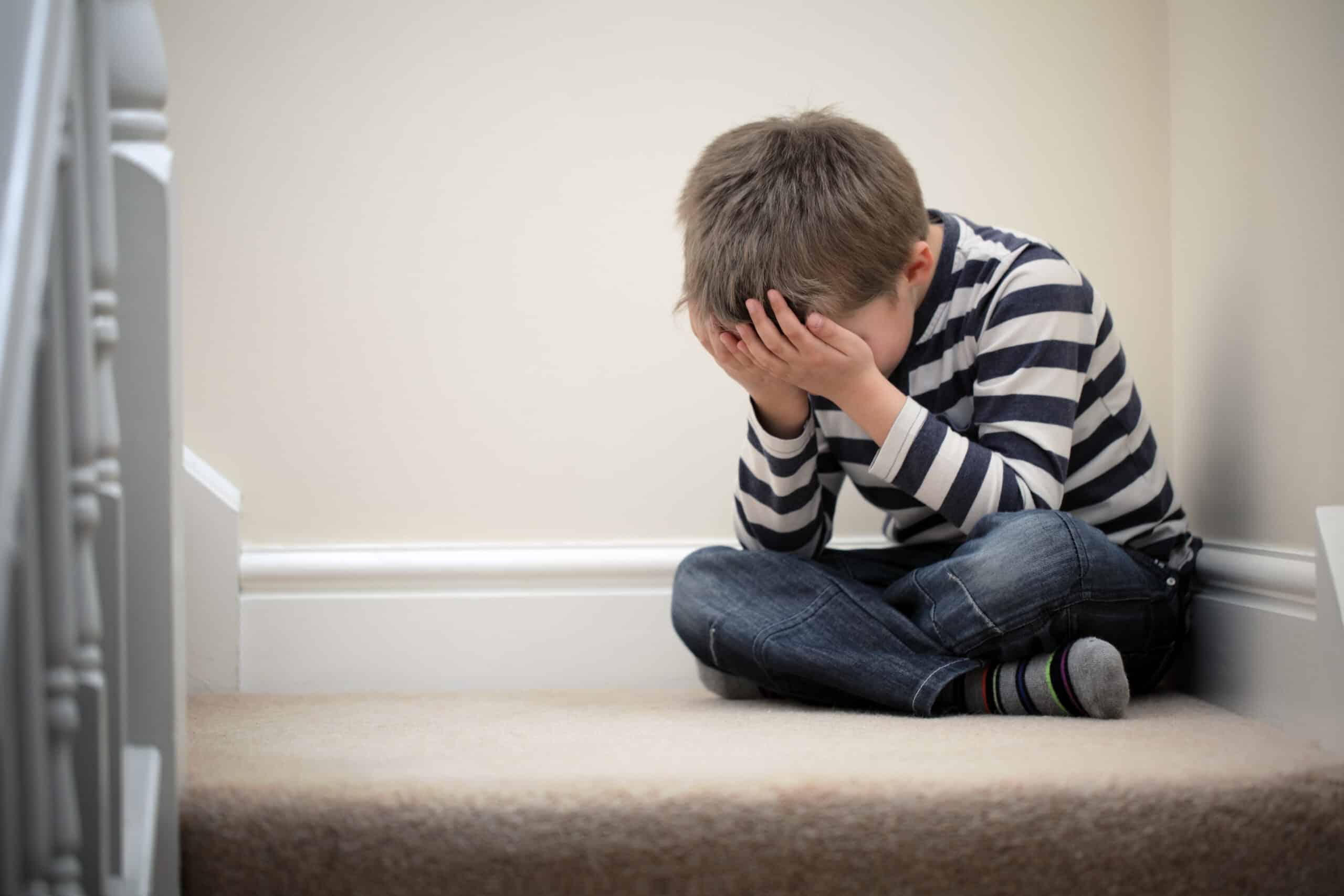As parents, we hope our children will be happy and healthy, and we know that regardless of any challenges they face, our love for them remains the same. However, it is helpful to be informed if your child has a condition you may not be aware of. Recognizing when your child is struggling can be difficult, particularly when it comes to autism, as the signs aren’t always obvious. To help with early awareness, we have put together nine key signs that your child may be on the autism spectrum.
There are many different signs to watch for, such as a lack of language skills, constant irritability, engaging in self-harm, and not playing make-believe activities with the other kids. Granted, one or two of these signs don’t automatically point to autism. However, if you notice them, speak to a medical professional for guidance.
Lack of Emotion or Nonverbal Communication

©Yuliya Evstratenko/Shutterstock.com
One of the most noteworthy signs your child may be autistic is when they don’t show a lot of emotion. Or they fail to show the forms of nonverbal communication that many of us do involuntarily. It’s especially vital to watch for these issues during the first year of your child’s life. Your baby should be smiling a lot and there should be simple hand gestures like pointing and waving. If your child seems not to do any of this, it may be a sign of autism. Also, after six months, your child should be able to recognize their name and look at you when you say it. If you’re not seeing this, talk to a doctor. An autistic child may also make repetitive movements, like rocking their body and flicking their fingers. So keep an eye out for those red flags as well.
Lack of Language Skills

©Arlee.P/Shutterstock.com
By two, your child should be verbally communicating. It doesn’t have to be complex sentences, but there should be some communication. Remember that a delay in speech doesn’t necessarily point to autism. Sometimes, it may just be that your child is delayed, and they will catch up. Usually, if your child is not talking by age 2-3, you will want to see if they’re also exhibiting the other symptoms on this list. As your child gets older and reaches their teen years, they may find it hard to verbally express how they feel. Again, that can be a typical behavior of older kids. But compare them with the other signs on this list and speak to a medical professional if you see fit. Sometimes, a parent may get excited when they see their child speaking more, but then they’ll regress. If so, that could be another indication of autism.
Isolation

©fizkes/Shutterstock.com
While you may not be able to see the signs when your child is an infant, as they grow older, an autistic child will likely show a preference for isolation and being alone. Many autistic children are uncomfortable in loud and engaging places, like supermarkets and restaurants. There’s also the possibility that autistic children may be bullied or feel like they don’t fit in. Because of that, the isolation may be due to fear, rejection, or social anxiety. As your child grows, it’s also possible that they could be bullied because of their condition. That could also lead to isolation. If you think your child may have autism, support them from the start. That will help them to feel better and potentially be a bit less isolated.
Your Child Gets Upset Easily

©Kamelia Ilieva/Shutterstock.com
One of the signs your child may be autistic could be if they get overly upset at things that don’t affect everyone as harshly. For instance, many autistic kids can get upset if they don’t like a certain smell, sound, or taste. The sensations could be as simple as feeling the sand on the beach or hearing a extremely loud or quiet sound. It can be different for everyone, but there can be a certain aspect of the environment they don’t like. Some autistic kids also like to stick to a strict routine that they follow every day. It helps them to be at ease. When that routine is disturbed, they can get upset. Some autistic kids will get upset if you ask them to do something, like a chore around the house. If you see that your young child has a temper, ask a medical professional.
Not Engaging in Make-Believe Play With Other Children

©iStock.com/nilimage
Many children engage in pretend play. That could be where they’re pretending to cook a meal or be a professional, like a teacher or doctor. If you notice that your child is having trouble playing or they give up early, it could be a sign of autism. Many autistic children struggle with this play. It’s often because they may not understand the social cues, such as pretending to hold items, communicating during the game, and sharing. Some autistic children have a hard time with abstract thinking. If they don’t see the object in front of them, they tend to get confused. If the object is real, and they don’t like the texture or sound it makes, that could cause an outburst. Be on the lookout for these signs.
Performing Activities That Can Cause Self-Harm

©iStock.com/BrianAJackson
It may be scary, but if you see your children engaging in activities that could lead to self-harm, then it may be a major red flag for autism. Instances of self-harm can include banging their head against the wall, biting, and anything else that can hurt them long-term. It can often be a mystery why younger kids might engage in these behaviors. It could be that they’re trying to cope with emotional distress, to relieve the tension they feel inside or as a cry for help. If you notice this type of behavior, speak to a medical professional immediately before the child does indeed cause harm.
Your Child Isn’t Hitting Developmental Milestones

©Inara Prusakova/Shutterstock.com
Sometimes, the signs your child may be autistic may not be obvious at first. Instead, you may notice signs as they grow. A good idea is to take notice of when your child isn’t hitting the standard developmental milestones over time. Here are some important milestones that your child should exhibit:
- Babble by 12 months.
- Point, wave, or make other gestures by 14 months.
- Mimic sounds or copy facial expressions by 9 months.
- Play make-believe by themselves or with others by 18 months.
- Respond with a happy expression by 6 months.
- Speak single words by 16 months.
- Say two-word phrases or longer by 24 months.
If you notice that your child has missed several or many of these milestones, you may want to talk to the doctor. Again, kids can be delayed and turn out to be perfectly healthy, but it doesn’t hurt to ask.
They Avoid Eye Contact

©Yavdat/Shutterstock.com
One of the most significant red flags and signs your child may be autistic is when your kids avoid eye contact almost all of the time. Yes, your child may move his or her head and constantly be looking at something new, especially when they’re babies and toddlers. However, when your child can’t make eye contact at all to the point that it seems painful to do so, it may be an issue. Along with a lack of eye contact, an autistic child will continue to speak infrequently as they get older. If they do speak, they may repeat the same phrases. This repetition is often referred to as echolalia, and it’s a potential sign of autism. If you notice them repeating phrases or words or notice other odd verbal queues, speak to a medical professional.
Issues with Coordination

©Anna Kraynova/Shutterstock.com
Recent studies from Autism.org show that one of the signs your child may be autistic is issues with coordination and motor skills. The research shows that many autistic kids experience both fine and gross motor skill delays that can affect how they stand, walk, and perform other activities. This is still a phenomenon that they are researching. Scientists believe it could be due to differences in brain wiring. It could also be anxiety that affects how willing your child is to participate in new tasks, so they don’t build muscle memory. There are even theories about low muscle tone. If you notice these issues with your child, speak to the doctor.
The image featured at the top of this post is ©Gatot Adri/Shutterstock.com.
